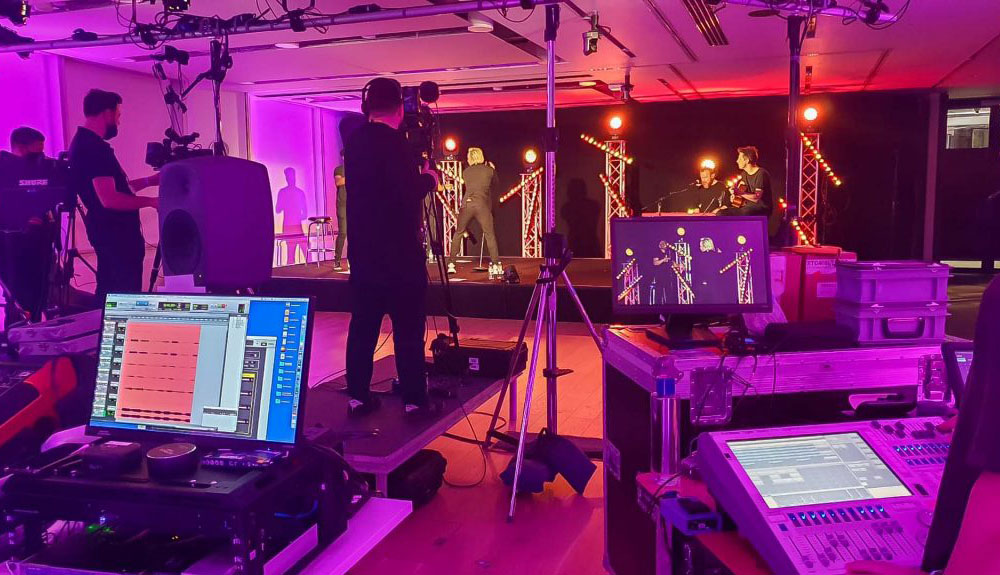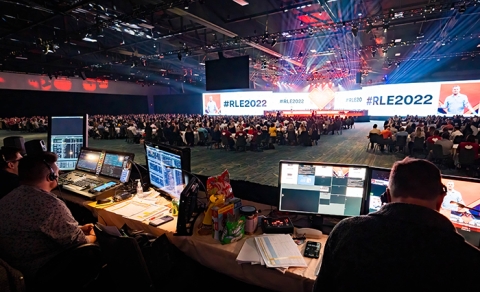Optimize Engagement with Interactive Aspects in Event Productions
Comprehending Just How Events Manufacturing Works: A Comprehensive Introduction of the Process
The intricacies of event production demand a methodical technique that incorporates numerous phases, each playing a critical role in the overall success of an event. Comprehending the nuances of budgeting, resource allowance, and on-site monitoring is crucial for any professional in this area.
Initial Planning and Concept Development
Effective initial preparation and concept development act as the foundation for successful occasions production. This stage includes defining the event's purpose, target audience, and desired outcomes. A clear vision is important; it guides all subsequent decisions and helps align the group's initiatives toward a common goal.
Throughout this stage, brainstorming sessions can be vital. Involving stakeholders, consisting of clients, sponsors, and potential participants, cultivates a collective environment that produces cutting-edge ideas. Additionally, comprehensive marketing research need to be performed to comprehend trends, preferences, and possible difficulties.
When the concept is developed, it is important to create a detailed occasion outline. This synopsis must include the occasion's style, format, and crucial activities. Establishing a timeline is equally important, as it assists to manage target dates and jobs efficiently.
Budgeting and Source Allocation
With a solid idea in area, focus must turn to budgeting and resource allotment, which are crucial parts in implementing the occasion efficiently. A well-defined budget serves as a roadmap, outlining all expected expenses and offered sources - Event Productions.
Source allowance includes designating both human and monetary sources to different jobs and elements of the occasion. Prioritization is crucial; crucial components need to obtain ample financing while much less essential facets might call for an extra conventional technique. Contingency preparation is critical-- alloting a part of the budget for unanticipated expenditures can mitigate financial risks.
On top of that, efficient communication amongst employee pertaining to budget constraints promotes partnership and innovation. This advertises the responsible usage of resources and encourages innovative services to remain within budget plan. Ultimately, a calculated method to budgeting and resource appropriation prepares for a successful event, making it possible for planners to focus on delivering an unforgettable experience for attendees while preserving financial stability.
Logistics and Coordination
Browsing the intricacies of logistics and sychronisation is essential for the smooth execution of any type of occasion. This phase includes thorough planning and company to ensure that all elements operate in harmony. Secret components include location option, transportation plans, and the organizing of various activities.
Efficient logistics starts with an extensive analysis of the venue's limitations and capabilities. This includes recognizing the format, access points, and offered sources. As soon as the venue is confirmed, transportation logistics need to be developed, incorporating the movement of attendees, devices, and products. Collaborating these components calls for collaboration with vendors, providers, and transportation services to guarantee prompt shipments and pick-ups.
An additional essential facet is the growth of a thorough timeline that lays out all logistical components leading up to the occasion. This timeline acts as a roadmap, outlining essential milestones and deadlines for jobs such as devices configuration, catering services, and audiovisual installments. Normal interaction with all stakeholders is important to deal with any possible Resources concerns proactively.
Execution and On-Site Management
Effective execution and on-site monitoring are vital for transforming careful plans into reality throughout an event. Their capacity to make real-time decisions can dramatically influence the event's success.
A distinct routine is essential, functioning as a roadmap for all activities. Event supervisors must make sure that setup happens on time, adhering to timelines for audio checks, providing deliveries, and visitor arrivals. Effective analytical abilities are also crucial; unanticipated challenges can develop, calling for quick thinking and versatility to keep the event's flow.
This level of engagement not only enhances the total experience yet additionally mirrors the expertise of the occasion team. Ultimately, successful implementation and on-site monitoring joint on in-depth preparation, effective communication, and a dedication to providing an outstanding occasion for all included.

Post-Event Examination and Feedback
The conclusion of any kind of event lies not just in its execution however additionally in the extensive analysis that follows. Post-event examination is important for figuring out the overall success of the event and determining locations for renovation. This process normally entails gathering comments from different stakeholders, consisting of attendees, vendors, and team members, to obtain a comprehensive perspective on their experiences.
To structure the examination, occasion organizers commonly make use of meetings and studies, concentrating on essential performance signs such as guest contentment, logistical efficiency, and budget adherence. Analyzing this data allows planners to evaluate whether the event met its objectives and to understand the strengths and weaknesses of the execution.
By systematically resolving comments and implementing adjustments, event professionals can improve their techniques, inevitably leading to more effective and impactful occasions. In final thought, post-event evaluation is a crucial step in the occasion production procedure that ensures recurring growth and quality useful source in future endeavors (Event Productions).
Final Thought

The complexities of occasion production need a systematic method that incorporates multiple stages, each playing an essential role in the general success of an occasion.With a have a peek at this site solid idea in area, attention needs to transform to budgeting and resource allowance, which are essential components in carrying out the occasion successfully.Resource allocation involves designating both human and financial resources to different jobs and parts of the event. Ultimately, a calculated strategy to budgeting and source allocation lays the groundwork for a successful occasion, making it possible for organizers to focus on delivering a memorable experience for guests while preserving economic honesty.
